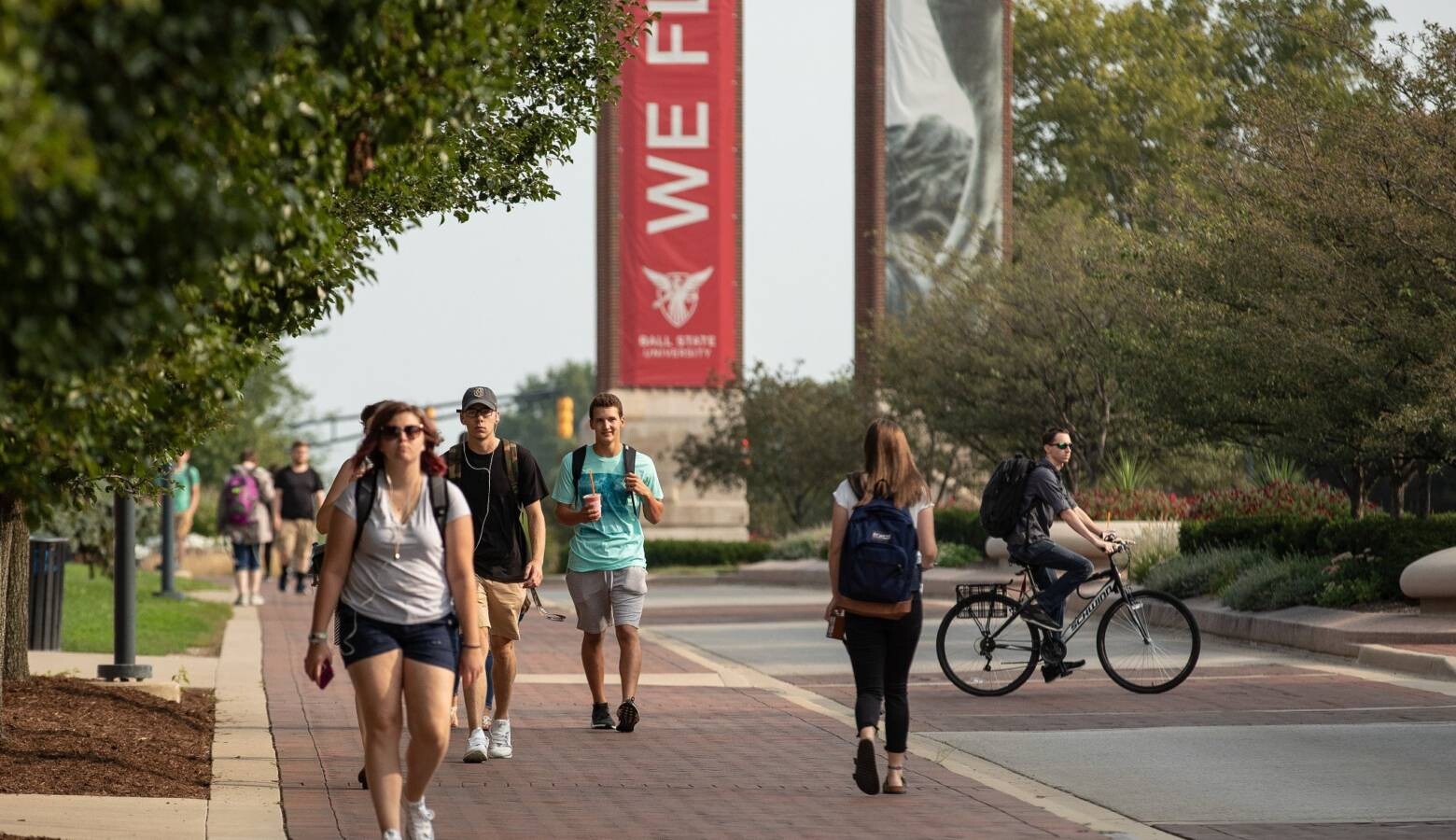Purdue Expands Coronavirus Contingency Plans; BSU Plans For Spring Break Travel

While the US and world markets prepare for a potential spread of coronavirus, Indiana universities are updating plans.
Purdue University
Purdue University’s President Mitch Daniels and Provost Jay Akridge have announced a series of precautionary measures the school plans to take in case of a coronavirus outbreak.
“It is our hope that we are preparing for many eventualities that will never occur,” Daniels and Ackridge wrote in a letter Monday.
According to the statement–which notes there are no current cases of COVID-19 at Purdue or in Indiana–the school will stop hosting or inviting guests from China, Iran, South Korea, Italy and Japan “effective immediately.” Last week, Purdue halted all university-related travel through the summer to these countries, which the Centers for Disease Control and Prevention has identified as a level 2 or level 3 risk for coronavirus. A level 2 risk cautions travelers to “practice enhanced precautions,” and a level 3 risk urges against all nonessential travel.
The statement also addresses plans for quarantine spaces in case containment of the virus is required, and the possibility of alternative learning options if normal classes are disrupted.
“It is very unlikely that the problem will progress to the point of needing to impose ‘social distancing’ and pause face-to-face instruction as a result of a COVID-19 outbreak on campus,” Daniels and Ackridge wrote. “However, we are currently working with the Innovative Learning team (Purdue Online) on approaches that will allow us to continue to deliver courses.”
Purdue employees are also advised to develop contingency plans for their specific departments.
Ball State University
This week is spring break for Ball State University, with many students off-campus and possibly traveling.
In early February, Ball State University suspended travel to China, in accordance with a travel advisory from the US Department of State. Officials say it will continue to not sponsor or encourage travel to countries or regions with similar Level 3 or 4 travel advisories – which now includes nations like Iran, Italy, and South Korea.
As for students or employees who have traveled at spring break, Ball State says it strongly encourages anyone who has traveled to places with many cases of COVID-19 to talk with their doctor, monitor themselves, and “separate themselves from other people until the recommended transmission period is past.” The school has not put in place any required quarantine.
Since late January, Ball State says it has increased the cleaning of restrooms and other “high touch surfaces” in residence halls and academic buildings.
The university says it has not changed how large groups gather. “Currently, there is no basis for changing business as usual regarding housing, campus events, and other circumstances under which large groups of people will be gathering. There is no indication for use of masks by the general public at this time.”
It says it is reviewing policies “as it relates to student and employee absenteeism” in case the coronavirus is detected in Indiana.
The University of Notre Dame
The University of Notre Dame cancelled it’s Rome study abroad program Friday after the CDC issued a travel advisory to Italy.
Some faculty and 106 students who were in Rome are back now. They are required to stay home for 14 days and to be cleared by a doctor.
University Spokesperson Dennis Brown says these are preventative measures and there haven’t been any confirmed cases of coronavirus at Notre Dame.
“It is an evolving situation, a lot of fluidity to it. We are continuing to monitor the national and international landscape, keeping apprised of what the CDC and state department are recommending.”
Brown says the University is keeping a close eye on other places students are studying, like Japan.
The University also strongly discouraged students from traveling internationally during spring break, which is from March 7th to the 15th.
